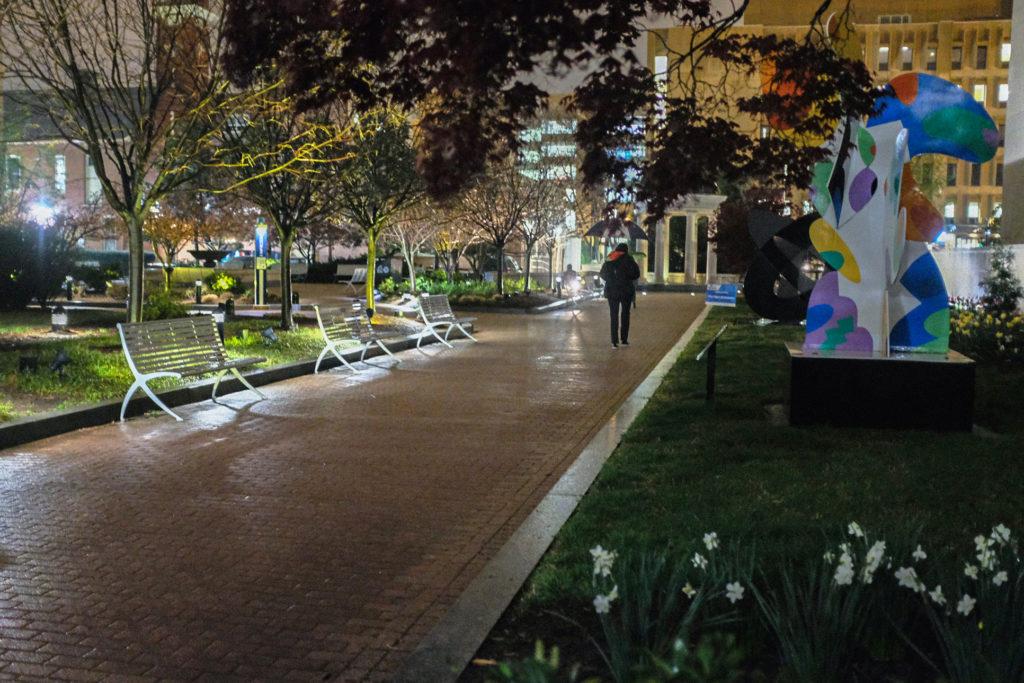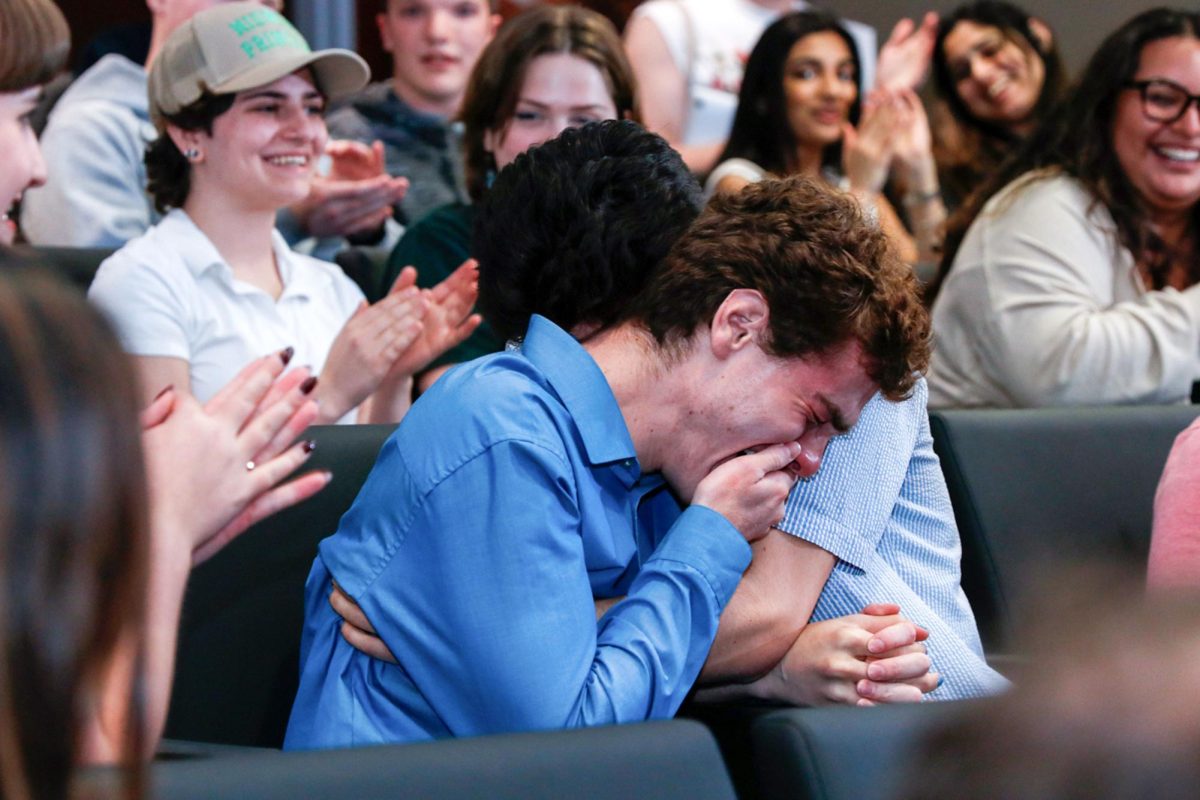As the Student Association elections approached with a record-low number of candidates late last month, some students were unaware of the campaigns until days before voting opened.
A total of 2,690 students – about 10.4 percent of eligible voters – voted in the SA election, bringing the registered voting turnout fall to a 10-year low. More than 50 students said they were unaware of the SA campaigns for much of the election season, during which candidates and campaign advertisements, like posters scattered around campus, remained near their lowest levels in years.
In interviews, nearly 40 students said they did not vote in the election because they didn’t know the SA was running an election. Students who voted said they learned about candidates from student organizations, like GW College Democrats and the Interfraternity Council, which released endorsements in the final days before polls opened and following The Hatchet’s coverage of the election season.
Trip Johnson, the Joint Elections Commission chair, said the JEC “had big hopes” to increase voter turnout this year and aimed to secure more than 5,000 voters through in-person advertisements like stickers and QR codes that encouraged students to vote. He said the low turnout may be credited to sophomores and juniors, who could have lacked the motivation to vote after seeing the virtual SA elections during the past two years.
“Just coming out of COVID, that I feel like has an impact on just people’s perspectives in general, what they want to involve themselves in, whether or not they had exposure with the SA,” he said.
The election season kicked off last month with a low-profile postering day that only two senate candidates participated in after presumed presidential candidate SA Vice President Kate Carpenter announced she would not be running for office after being the target of what she said considered cyberbullying. Johnson said he moved the time of the postering day back to 9 a.m., instead of the traditional 8 a.m. start time, to encourage more candidates to participate in the annual event.

Nicholas Anastacio | Graphics Editor
The last couple of days of the election season included last-minute announcements of write-in candidates and criticisms of candidates’ platforms from anonymous social media accounts, like the now-deleted Instagram account “gwheadlines,” to cap off the campaign season.
Johnson said most voters cast their ballot on all the agenda items like the executive positions, senate races and the proposed referendum. Students elected Christian Zidouemba as SA president and Yan Xu as SA vice president and passed the referendum for policies that govern the SA budget.
He said more students submitted write-in candidates in this election compared to previous years because the JEC changed its policy to allow nonregistered write-in candidates for all races this year.
“Some of those were jokingly named, some of those were just misspellings,” he said. “But we had significantly more because of the fact that the bylaws didn’t require registered candidates.”
Sophomore Andrew An announced a last-minute write-in campaign for SA president on Instagram the day of the election, receiving about 9 percent of the total vote, while all other write-in candidates received about 6 percent of the total vote. In 2019, then-freshman Justin Diamond also ran a write-in campaign on a platform to abolish the SA, in which he forced the presidential election into a runoff with eventual SA President SJ Matthews and received about 33 percent of the vote.
Johnson said voter turnout could have also dropped because of the shortage of candidates in this year’s election. He said candidates are often connected to a variety of students and student organizations that can directly encourage voting, but with fewer candidates, students feel less connected and are less likely to vote.
“If you have five different people running with five different friend groups, five different organizations,” he said. “That’s just spreading out the amount of campaigning that’s going to reach prospective voters and our students, but if you only have two candidates running, that’s only two friend groups, only maybe half the amount of student organizations.”
Law students said the SA should have sent emails to their law-school-specific emails instead of their general university emails to notify them about the SA’s campaign season. Bailey Hoffeditz, a second-year law student, said law students are disconnected from undergraduate elections, and she may have voted if candidates hung more posters on campus to promote the election.
Campus had relatively few posters this year – presidential and vice presidential candidates like Dasia Bandy and Yan Xu later hung up their posters after the designated postering day.
“I know law students, they feel kind of separate from the rest of the campus, so that might have something to do with it too, that we’re just not the demographic or the target audience,” Hoffeditz said.
Nichele Casse, a freshman studying international business, said she did not vote because she was unsure whether the information she heard about SA members receiving a stipend was true.
The SA president and vice president each received $11,250 in scholarship funding for the current academic year. SA senators and members of the executive cabinet do not receive any scholarships or stipends.
Casse said if candidates discussed their platform points earlier to make their campaigns more visible, she would have been more excited to vote.
“I just feel like it’s a lot of empty words,” she said. “They don’t really care enough.”
Julian Littlefields, a junior studying French, said he did not vote because he felt that the overly “dramatized” campaigns were not important enough. He said the pandemic showed that the SA did not have a significant impact on student life because its actions during the pandemic felt “performative.”
“It’s not something I think about a whole ton,” he said. “The politics of the school feel much more dramatized than they could be.”
Lauren Grauer, Riya Sharma, Faith Wardwell, Lauren Sforza, Abby Kennedy and Annie O’Brien contributed reporting.







